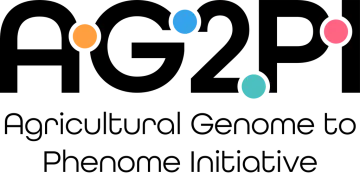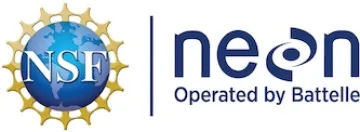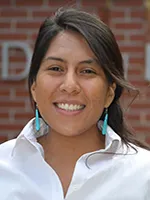Teach using CyVerse!

CyVerse makes it easy to teach and learn computational methods. Our Discovery Environment (DE) is a web-based analysis platform with a friendly user interface in which educators and students can easily upload data, run computational analyses, and share results—all with a few mouse clicks.
For more interactive experimentation with datasets and the ability to visualize results, the DE includes interactive apps (i.e., Visual and Interactive Compute Environment apps) that enable researchers and students to use integrated development environments like Jupyter Notebooks, RStudio, and Docker containers for easily reproducible analyses.
In the Classroom
For Workshops

The Agricultural Genomics to Phenomics Initiative (AG2PI) is a USDA-funded collaboration project to build technical strengths and future collaborative G2P communities. AG2PI offers workshops to enable researchers from all backgrounds and computational skill levels to develop best practices, common vocabularies, and technical expertise around genomic and phenomic cyberinfrastructure, data tools and pipelines, statistics, and experimental techniques.
AG2PI has given multiple online workshops reaching hundreds of scientists using CyVerse as one of the computational platforms on topics such as:
- Foundations of Computation
- Introduction to Single Nucleotide Polymorphisms (SNP) Data Analysis
- A Practical Guide to Genome-Wide Association Studies (GWAS)
- Phenomic Data Processing Using Machine Learning, Distributed Computing & Container Technology

The National Ecological Observatory Network, or NEON, is a continental-scale observation facility funded by NSF and designed to collect long-term open access ecological data to better understand how US ecosystems are changing. NEON offers workshops to train students and researchers on key skills to work with NEON data.
In the NEON Airborne Observation Platform (AOP) Workshop (November 2020), attendees learned to use the NEON Data API through hands-on exercises using CyVerse to analyze NEON’s AOP remote sensing data in the RStudio, Project Juypter (Python) notebooks, and open source desktop GIS applications (QGIS, GDAL, PDAL, GRASS-GIS).
Learning goals included:
- How to understand and use NEON Data API
- How to work with RStudio and Python Notebook
- How to store and move data around the Cloud
- How to scale up computation from laptop to Cloud to HPC
How to Request CyVerse Resources for Teaching

Pro and Commercial subscribers can submit the form for Requesting Resources via the CyVerse User Portal. Please describe your activity, size of audience/class, resources needed, etc. A CyVerse team member will follow up with you.



